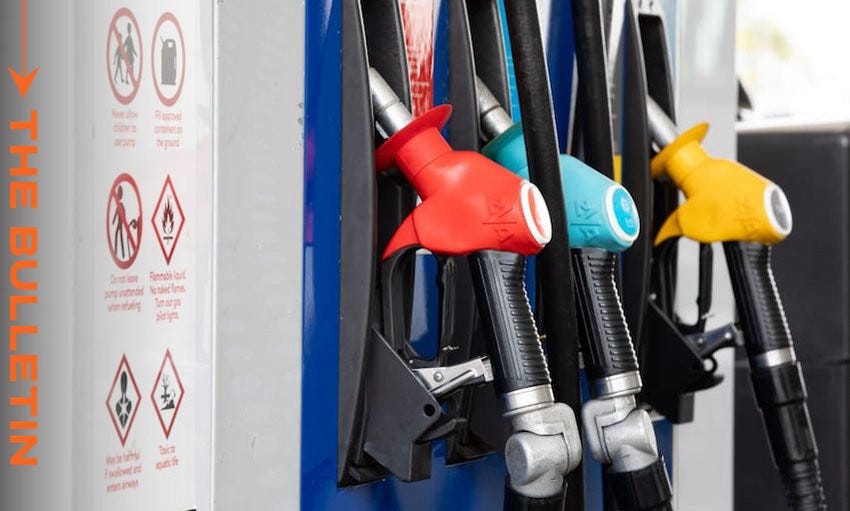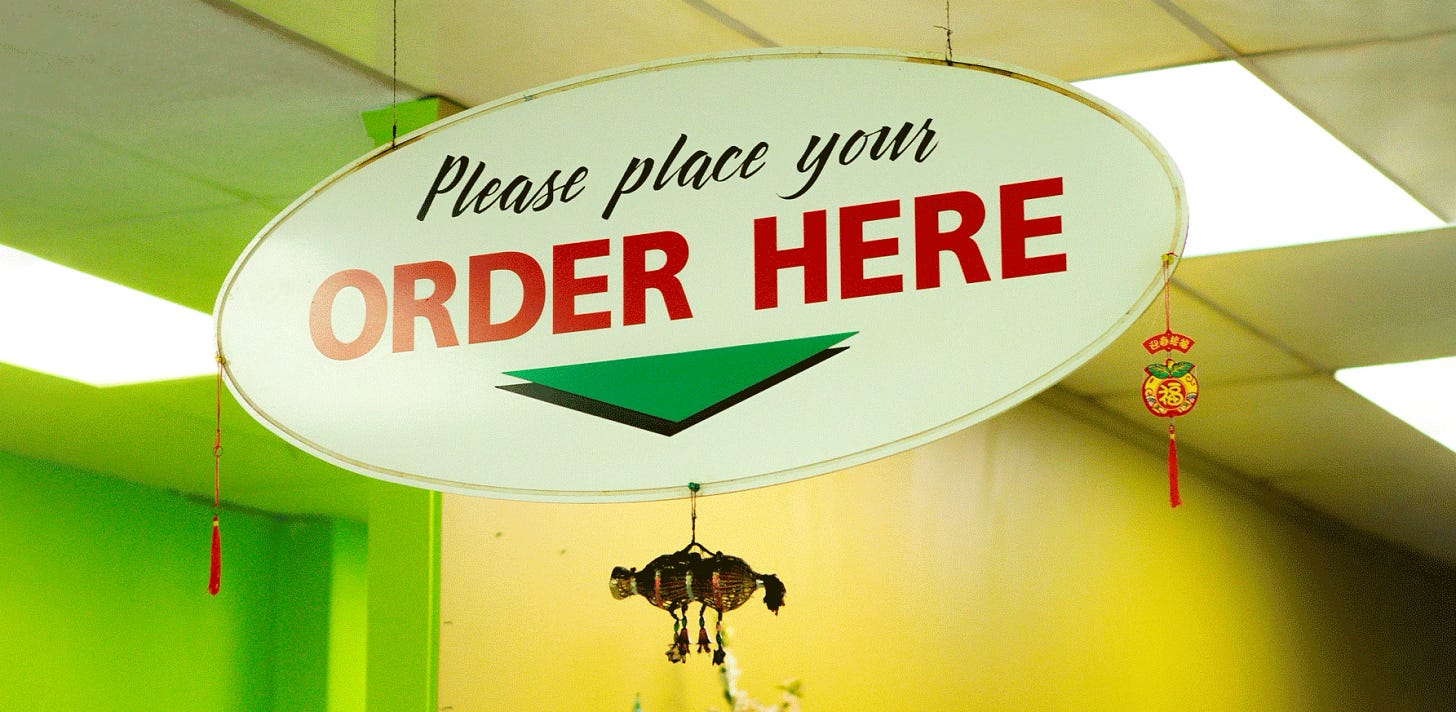The July 1 changes and what they mean for you
From fuel tax relief to the return of prescription fees.
Mōrena, and welcome to The Bulletin for Monday, July 1.
In today’s edition: Will Joe Biden be forced out of the presidential race, the costly clean-up in Wairoa, and it’s the final week of Newshub. But first, relief at the pump, but that’s not the only change coming into effect today.
Fuel is a little bit cheaper (in Auckland)
Welcome back, I hope you all had a lovely long weekend. A quick shout out to Alice and Duncan for taking good care of The Bulletin at the end of last week while I was recovering from a cold.
It’s somehow already July 1, a day that tends to be quite important as new government initiatives kick in. This year is no different, as the Herald’s Front Page podcast looked at before the weekend. Arguably the biggest headline grabber impacts only Auckland, with the last government’s regional fuel tax removed overnight. Prime minister Christopher Luxon said dumping the tax, which amounts to 11.5 cents per litre, would help reduce cost of living pressures, while transport minister Simeon Brown told Newstalk ZB that any unspent tax take would go towards priority projects, including the Eastern busway and local roading upgrades. The AA has warned fuel companies it will be keeping a close eye to ensure they pass the savings onto drivers, reported RNZ. It’s welcome relief at the pump, no doubt, but it’s worth remembering the government’s long term transport plan includes raising fuel excise by 12 cents in 2027, and a further 10 by 2029, as confirmed just last week.
The other changes that could save – or cost – you money
It’s still a few weeks until the government’s long-touted tax cuts come into effect, but there are other measures kicking in today. Newshub’s Alexa Cook wrapped those last night, reporting that the government’s childcare subsidies kick in today, while 1News laid out the increase to paid parental leave. It’s bumping up to a maximum of $754.87 a week. That one is a legislated annual increase to keep the support in line with average weekly earnings, so while governments of all stripes try to claim responsibility, they can’t really. One change the government can take credit for is the adjustment to the brightline test, bringing it back down to two years. Since 2021, capital gains could be taxed when an existing property that was not a main home was resold within a decade. The Post’s Miriam Bell looked at the pros and cons of this somewhat controversial move earlier in the year.
Also in The Post this morning, Frances Chin looks at the changes to debt-to-income rules, with property buyers able to borrow up to six times their annual income for a house. In Auckland, the Herald’s Bernard Orsman noted today also marks a rise in rates and water bills for homeowners.
How things are tracking
As I said at the top, July 1 is routinely a day when significant changes come into effect. RNZ’s Susan Edmunds looked back at some of last year’s changes and how they are faring after 12 months. Perhaps the shortest lived of those is the Labour government’s decision to scrap the $5 co-payment for prescriptions, which is being reinstated by the coalition today for most people (initially, this was meant to help pay for new cancer drugs, but in reality it will just help make budget ends meet). Other changes, such as the ban on single-use plastic products like straws, appear to have a longer life ahead. Edmunds wrote that while the proposal was criticised by some for potentially adding costs to small businesses, it has ended up having a minimal impact on expenses for restaurants.
It’s also now two years since Labour’s sweeping health reforms took place, merging DHBs under the banner of Te Whatu Ora. This group think on The Spinoff published a year ago checked in on how the new health agency was going and reported a lot of negativity. “In my 40-odd years of nursing, never have things been so bad, so short-staffed, so stressed,” said a paediatric nurse in Waikato. Things remain fairly rocky in the health sector, as illustrated by a new report that noted ongoing shortages in the workforce. Te Whatu Ora’s director Amy Adams has just finished her term, saying she was “not able to advance the changes” that she believed needed to be made.
Meanwhile, the government is celebrating the opening of a new surgical facility at North Shore Hospital today that will have capacity for 15,000 operations a year once fully staffed.
Another action plan comes to an end
The weekend also marked the end of the coalition’s second action plan period, part of Christopher Luxon’s rather business-like way of managing government. The Herald’s Derek Cheng took a look at the government’s progress over the latest quarter, reporting that a few of the 36 objectives are yet to be ticked off, including decisions around increasing investment in renewable electricity generation. Though, noted Cheng’s colleague Adam Pearce, the government could claim it has taken decisions behind closed doors and opted not to make them public. Expect to hear more on this at today’s post-cabinet press conference – I’m particularly excited to hear what yardstick can be used to measure if the “energy” was raised in international relations. All going to plan, we’ll have another government action plan to discuss this time tomorrow morning. In the meantime, if you need it, The Spinoff’s Gabi Lardies has this helpful guide on how to make your own personal action plan. It’s filled with exceptional advice.
Join The Spinoff Members
“The Spinoff is one of the great pleasures of my reading life, the repository of timely and quality journalism that continues to surprise, delight and inform.” Denise, Spinoff Member since 2020.
If, like Denise, you enjoy our work and want to support us, please consider becoming a member today. Already a member? Ka nui te mihi, your support means the world to us.
Calls for Biden to drop out of presidential race
One of the dominating news narratives of the weekend has been the fallout from the first US presidential debate between Joe Biden and Donald Trump. I assume many of you will have caught it live, but if you didn’t, this CNN analysis makes for grim reading. “Objectively, Biden produced the weakest performance since John F. Kennedy and Richard Nixon started the tradition of televised debates in 1960,” wrote Stephen Collinson. Closer to home, The Post’s Luke Malpass described Biden as a “semi-senile old man”, though rightfully noted Trump didn’t have a great night either, “retreating into his usual mixture of lies, exaggerations and insults”. In short, wrote Malpass, “it seemed like a competition between lower-than-desirable morals and higher-than-desirable age”. Bleak.
The discussion in the US has quickly shifted to whether Biden should drop out of the race altogether, as this piece in The Atlantic looks at, with some speculation the decision to host such an early debate may have been to allow time to find a successor for the incumbent if necessary. An editorial by the The New York Times said that “the greatest public service [Biden] can now perform is to announce that he will not continue to run for re-election”. So who could step in? The Guardian looks at six possibilities.
Wairoa flooding: Damage could top $40m, says mayor
The mayor of flood-ravaged Wairoa says he will be asking the government to help foot the bill for the clean up, which he estimates could top $40 million. A state of emergency remains in place after heavy weather bombarded the town last week, a year after Cyclone Gabrielle swept through the East Coast. “It’s just relentless really,” Craig Little told RNZ. “People's possessions, now just wet sodden heaps out in front of their homes – all their furniture and everything, beds, carpets, linos, underfloor insulation, the gib inside.” Little has called for a government inquiry into the flooding, reported Newshub’s Alexa Cook. Emergency management minister Mark Mitchell will be seeking further support for Wairoa as cabinet meets today.
A strange trip through the end of Newshub and the beginning of crypto gaming
Former Newshub chief news officer Hal Crawford returns to The Fold to reflect on the upcoming Newshub closure and the potential of Stuff's replacement offering, as well as a recent foray he took into the world of crypto gaming.
Listen on Spotify or wherever you get your podcasts.
Click and Collect
Three’s Newshub will air its final programme this coming Friday before Stuff takes over the evening bulletin. I really enjoyed this mini documentary on Newshub by Adam Hollingworth for The Detail. We’ll have more on the closure of Newshub later in the week.
Andrea Vance at The Post makes a compelling case that the opposition has lost its voice. “There is nothing louder than the silence emanating from Labour’s benches,” she writes. As an aside, there’s been a bit of a flurry of Labour press releases over the weekend, but maybe it’s a coincidence.
In The Guardian, a look at how Rishi Sunak abandoned his “legacy” policy to ban smoking for future generations amid a backlash from the tobacco industry. Sound familiar?
Documents released to 1News show the Defence Force warned the government that boot camps would “not work for complex participants and has previously resulted in serious mental and physical harm of defence personnel”.
A new poll reported by Newstalk ZB shows a majority of New Zealanders want the government to buy a new Defence Force plane.
In The Press, I enjoyed this “rush hour commuter race” looking at the transport challenges facing Christchurch.
And if you missed it, I highly recommend this cheeky report by The Spinoff’s Alex Casey as she bravely goes inside the *shocking* drag storytime event Brian Tamaki didn’t want you to see.
For our latest Cover Story, Preyanka Gothanayagi looks at how Wellington became a cornucopia of Malaysian food. Joel MacManus asks whether it’s time to write Tory Whanau’s political obituary in his latest Windbag column. Madeleine Chapman reviews the opening night of Red, White and Brass in Auckland. Pop artist Paige shares the soundtrack to her perfect weekend. For the Sunday Essay, Claire Mabey writes on how evangelical Christianity sparked a life’s fascination with the power of stories – and the fuel to write her own. Angela Bloomfield looks back on a television history filled with reality TV romance, soap lightning strikes and a disturbing mermaid experience for My Life in TV.
That’s it for The Bulletin today, thanks for reading. I’ll be back tomorrow.
Let me know in the comments, or get in touch with me at thebulletin@thespinoff.co.nz, if you have any feedback on today’s issue or anything in the news.
If you liked what you read today, share The Bulletin with friends, family and colleagues.














